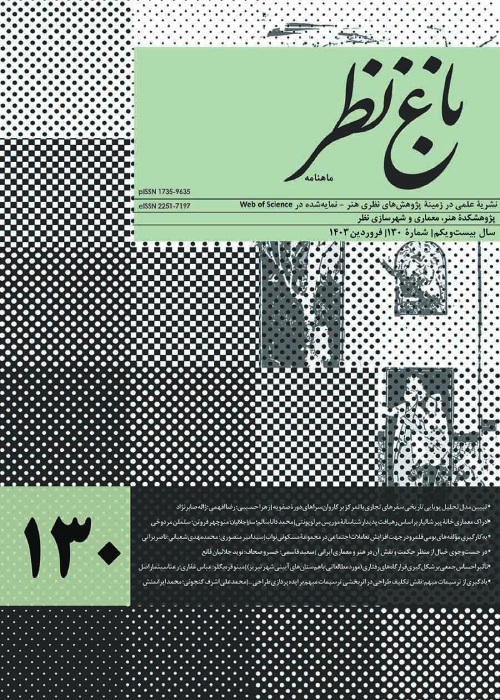Analysing the impact of unplanned metropolitan growth on the peripheral natural environment: special reference to the metropolitan region of Tehran
Author(s):
Abstract:
Statement of the problem: Metropolitan areas in the more and less developed countries of the world have formed essentially due to the utilization of economies of scale, and successively the metropolitan regions are formed through spatial-functional linkages of the metropolitan areas with their peripheral environments. This is while the increasing density and intensifying activities within metropolitan regions are not directly related and relevant to the principle of economies of scale; considering that the density and boundaries are determined and affected by population and ecological thresholds. Unplanned metropolitan growth and departure from the mentioned thresholds creates and accumulates spatial problems in metropolitan regions, especially in the peripheral natural environments. Many metropolitan regions have the experience of unplanned expansion and their damaged and problematic natural peripheral environments. This have led to the production and reproduction of many urban and environmentally related problems, such as spatial confusion in economic, social, organisational and physical aspects that causes the exhaustion of resources and helps further the wasting of economic, social, and physical capital.
Achievement: The main outcome and achievement of this paper is to emphasis on establishing a planning and policy-making mechanism in the metropolitan region of Tehran, enabled to reduce, solve, and prevent the problems related to the natural environment.
Purpose
Main purpose of this paper is to discuss the unplanned built environments formed by the unplanned growth of the metropolitan areas and metropolitan regions worldwide, and specifically the metropolitan area and the metropolitan region of Tehran. Moreover, the purpose is to confer the unplanned nature of these formed spaces and to consider the consequences of such urban growth. This is to empower and enable the metropolitan planning system and mechanism in encountering the production and re-production of urban and natural environmental problems. Based upon the results of analysing the impact of unplanned metropolitan growth of Tehran upon its peripheral natural environment in this paper, proposals to establish an appropriate planning mechanism for this metropolitan region can be devised.Methodology
This paper has a descriptive-analytical approach, which is devised to identify and analyse the emergence of problems in natural environments due to unplanned growth in the metropolitan region of Tehran. To achieve this, a three staged process has been conceived and adopted: first; the theoretical foundations of the subject under study are reviewed, through following the experiences of some of the more and less developed countries. Second; the paper further reviews the Environmental Impact Assessment (EIA) and Ecological Footprint (EF) methods in order to find an appropriate method and a set of appropriate indicators for analysing the impact of the growth of Tehran towards its peripheral natural environment. Third; application of the methods and indicators to analyse the ecological footprint of Tehran, to find the impact of unplanned growth of Tehran and its expansion towards the peripheral natural environment.Achievement: The main outcome and achievement of this paper is to emphasis on establishing a planning and policy-making mechanism in the metropolitan region of Tehran, enabled to reduce, solve, and prevent the problems related to the natural environment.
Keywords:
Language:
Persian
Published:
Bagh-e Nazar, Volume:13 Issue: 43, 2017
Pages:
37 to 60
magiran.com/p1636640
دانلود و مطالعه متن این مقاله با یکی از روشهای زیر امکان پذیر است:
اشتراک شخصی
با عضویت و پرداخت آنلاین حق اشتراک یکساله به مبلغ 1,390,000ريال میتوانید 70 عنوان مطلب دانلود کنید!
اشتراک سازمانی
به کتابخانه دانشگاه یا محل کار خود پیشنهاد کنید تا اشتراک سازمانی این پایگاه را برای دسترسی نامحدود همه کاربران به متن مطالب تهیه نمایند!
توجه!
- حق عضویت دریافتی صرف حمایت از نشریات عضو و نگهداری، تکمیل و توسعه مگیران میشود.
- پرداخت حق اشتراک و دانلود مقالات اجازه بازنشر آن در سایر رسانههای چاپی و دیجیتال را به کاربر نمیدهد.
In order to view content subscription is required
Personal subscription
Subscribe magiran.com for 70 € euros via PayPal and download 70 articles during a year.
Organization subscription
Please contact us to subscribe your university or library for unlimited access!


